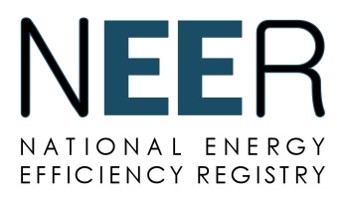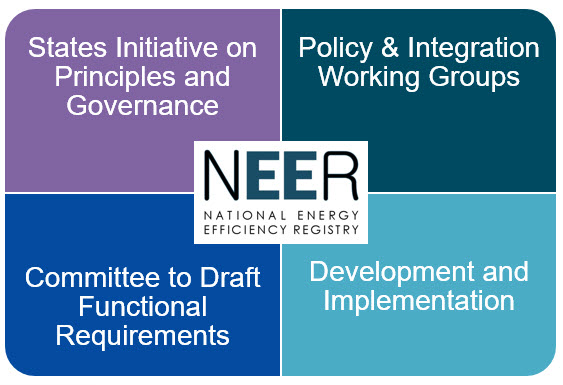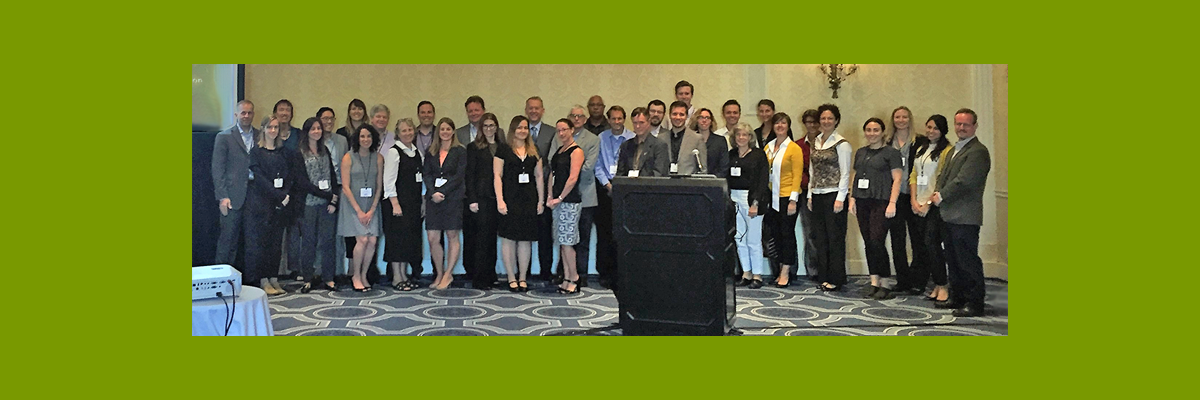by Pat Stanton
During the past few months I have been energized by the great work happening to create the National Energy Efficiency Registry (NEER). More than 150 experts have been reviewing the NEER’s draft principles and operating rules to be released for public comment in the spring of 2017. You’re invited to learn more and get ready to add your voice!
What is the NEER?
 If you haven’t heard yet, this is what all the buzz is about:
If you haven’t heard yet, this is what all the buzz is about:
–Consider the market transformation that has been driven by Renewable Energy Credits (RECs).
–NEER will harness similar transformative power for energy efficiency by creating a transaction processing platform that allows EE Providers to document energy savings in a robust transparent manner to demonstrate progress toward energy goals and potential compliance with existing and future state and federal environmental regulations.
Benefits
And here’s what I am most excited by:
–Standardizing document management and reporting protocols for EE projects can bring economies of scale.
–With a standardized NEER, states can add energy efficiency to their clean power portfolio with reduced administrative burden.
–Registries that create rigorous accounting through the creation, transactions and retirement of compliance instruments slash transaction costs and make public policies like RPS feasible. NEER has the potential to unlock access to potential compliance markets for EE Providers.
The state of Connecticut has incentivized EE project development through market-based tradable credits with a “Class III” designation within its RPS. To see how Connecticut uses EE credits, check out our case studies.
What’s E4TheFuture’s Role?
 Working under contract for and in partnership with The Climate Registry, E4TheFuture is facilitating a two-year, state-driven stakeholder process to develop the draft principles and operating rules documents. This work is part of the States Initiative on Principles and Governance, one of four components in the overall NEER development process.
Working under contract for and in partnership with The Climate Registry, E4TheFuture is facilitating a two-year, state-driven stakeholder process to develop the draft principles and operating rules documents. This work is part of the States Initiative on Principles and Governance, one of four components in the overall NEER development process.
If you want to learn more about NEER, see a five-page fact sheet, or contact The Climate Registry.
–Pat Stanton is E4TheFuture’s Director of National Policy
